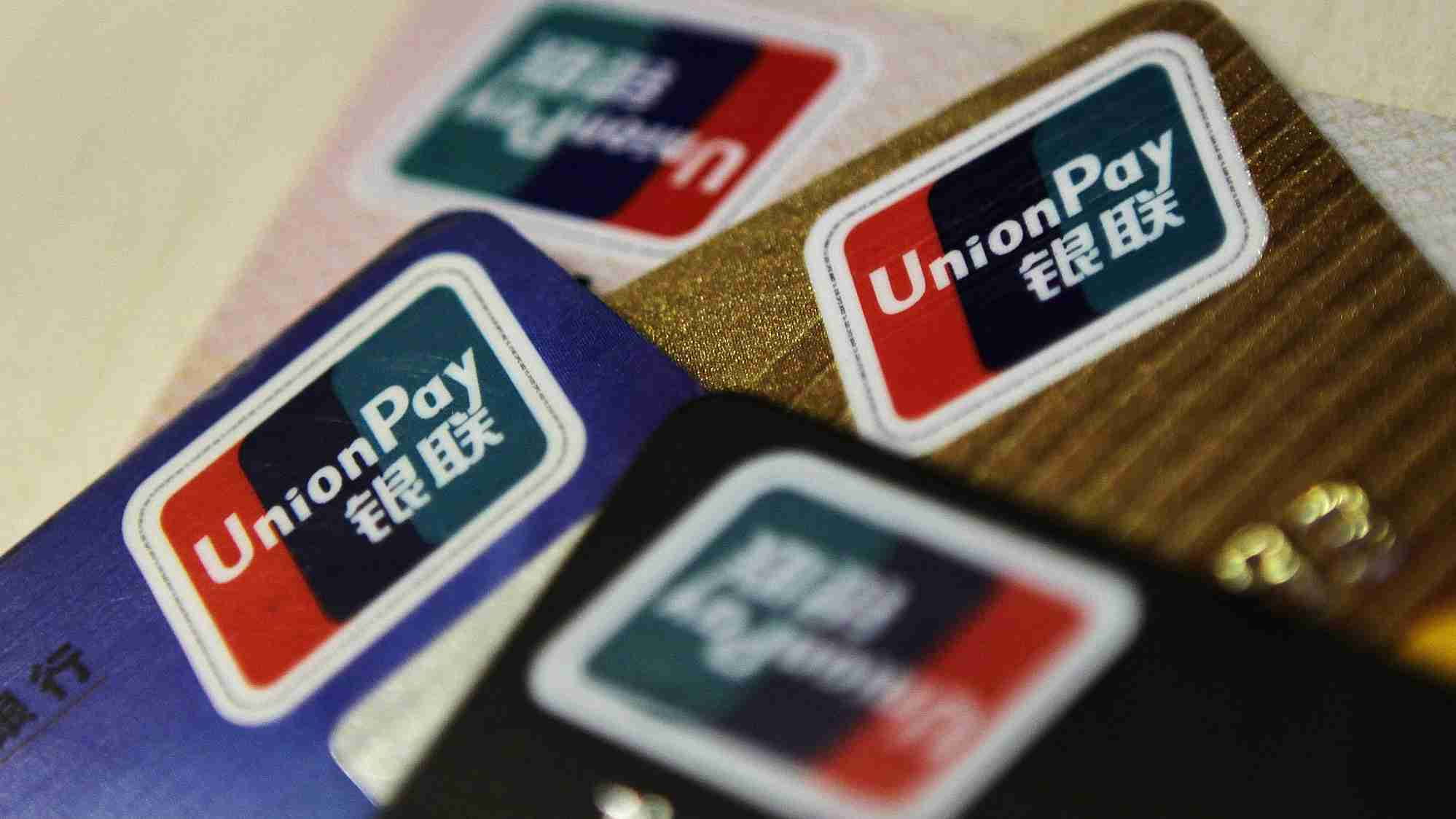
Business
17:13, 17-Sep-2018
China UnionPay reveals plans to take on Visa, MasterCard in Europe
Updated
16:13, 20-Sep-2018
Nicholas Moore

China UnionPay will begin issuing branded bank cards in the UK as early as next month as a first step towards further expansion into Europe, according to the company's regional head.
In an interview with the Financial Times, UnionPay's international market director and Europe head Wei Zhihong said that the bank card provider would work with a UK-based partner to issue “virtual pre-paid cards for British corporate clients” that can be used as mobile wallets while traveling in China and Asia.
This initial step will be followed later this year by UnionPay credit cards being issued elsewhere in Europe, with Wei telling the Financial Times “we want to target local customers in the domestic market, not only people traveling to Asia.”
After having already established access in 170 countries and regions for Chinese tourists and visitors, UnionPay's latest plans to offer services to European customers would see it challenge in a market controlled by Visa and MasterCard.
Outside of China, the Financial Times reports that Visa controls 50 percent of the card payments sector, while MasterCard represents 31 percent. UnionPay's presence outside China currently accounts for only 0.5 percent of the market.
UnionPay overtook Visa in 2015 to become the world's biggest issuer of bank cards in terms of money transacted. 37 percent of the 21.6 trillion US dollars spent globally through bank cards that year went through UnionPay, according to a study by Retail Banking Research.
UnionPay says it has issued seven billion cards worldwide – more than Visa and MasterCard combined. However, the vast majority of its market is based in China, where the payments industry has been disrupted by mobile platforms like AliPay and WeChat Pay.
China Daily reported last month that the Chinese mobile payments sector continued to expand in the second quarter of this year, with the country's banks processing 14.92 billion mobile payment transactions, up 73 percent year-on-year, according to data from the People's Bank of China.
A study by Analysys International published last year found that by the middle of 2017, UnionPay represented only 17 percent of China's 5.4 billion US dollar third-party payments sector, behind AliPay (39 percent) and WeChat Pay (27 percent).
With UnionPay earning a commission each time one of its cards is used in a transaction, the rise of mobile payments presents a credible challenge to the company's revenue. However, while Europe and other markets have not adopted mobile payments on a scale anywhere close to that seen in China, UnionPay will face tough competition against Visa and MasterCard.
The two US-based card issuers have themselves struggled to break into the Chinese market, despite China announcing in 2014 that foreign companies could apply for licenses to clear domestic transactions in renminbi.

SITEMAP
Copyright © 2018 CGTN. Beijing ICP prepared NO.16065310-3
Copyright © 2018 CGTN. Beijing ICP prepared NO.16065310-3